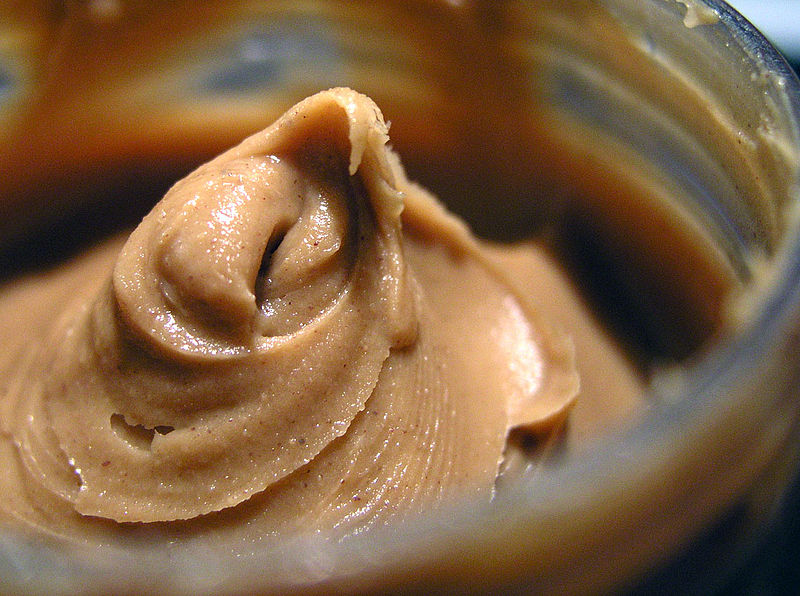A spoonful of peanut butter and a rule could be one way to confirm and diagnose the early stages of Alzheimer’s. Jennifer Stamps, a graduate student in the McKnight Brain Institute Center for Smell and Taste at the University of Florida, came up with the idea of using peanut butter when working with Kenneth Heilman, a Professor of Neurology at the University of Florida.
The cranial nerve, which is associated with smell, is the first to go during cognitive decline. In addition, peanut butter is a “pure odorant,” and can only be detected by the olfactory nerve and is easy to access. “Dr. Heilman said, ‘If you can come up with something quick and inexpensive, we can do it,’” Stamps noted.
The pilot study, published in the, Journal of Neurological Sciences, started with patients coming into the clinic for testing and sitting down with a clinician, 14 grams of peanut butter (a tablespoon), and a metric ruler. Patients were then instructed to close their eyes and mouth and block one nostril. The clinician placed the ruler next to the open nostril as the patient breathed normally and opened the peanut butter container. The clinician would then move the peanut butter up one centimeter at a time until the patient detected the odor. Distance was recorded and then repeated with the other nostril after a 90 second delay.
Clinicians were unaware of the patient’s diagnosis because they were usually not confirmed until weeks after initial testing. It was found that patients with the early stages of Alzheimer’s disease had a significant difference in detecting odor between the left and right nostril. The left nostril was impaired and was found to not detect the odor until an average of 10 centimeters closer to the nose than the right nostril.
However, this was only the case for patients with Alzheimer’s. Patients with dementia had either no differences in odor detection between nostrils or the right nostril was worse at detecting odor than the left one. Of the 24 patients with mild cognitive impairment tested, 10 patients showed left nostril impairment and 14 patients did not. Researchers said further studies are needed.
“At the moment, we can use this test to confirm diagnosis,” Stamps says. “But we plan to study patients with mild cognitive impairment to see if this test might be used to predict which patients are going to get Alzheimer’s disease.”
Researchers note this can be used when clinics don’t have access to the personnel or equipment to run other, rather extensive tests. “We see people with all kinds of memory disorders,” Heilman says. Many tests to confirm a diagnosis of Alzheimer’s disease or other dementias can be time-consuming, costly, or invasive. “This can become an important part of the evaluation process.”
Resource: http://www.futurity.org/can-peanut-butter-smell-test-confirm-alzheimers/




